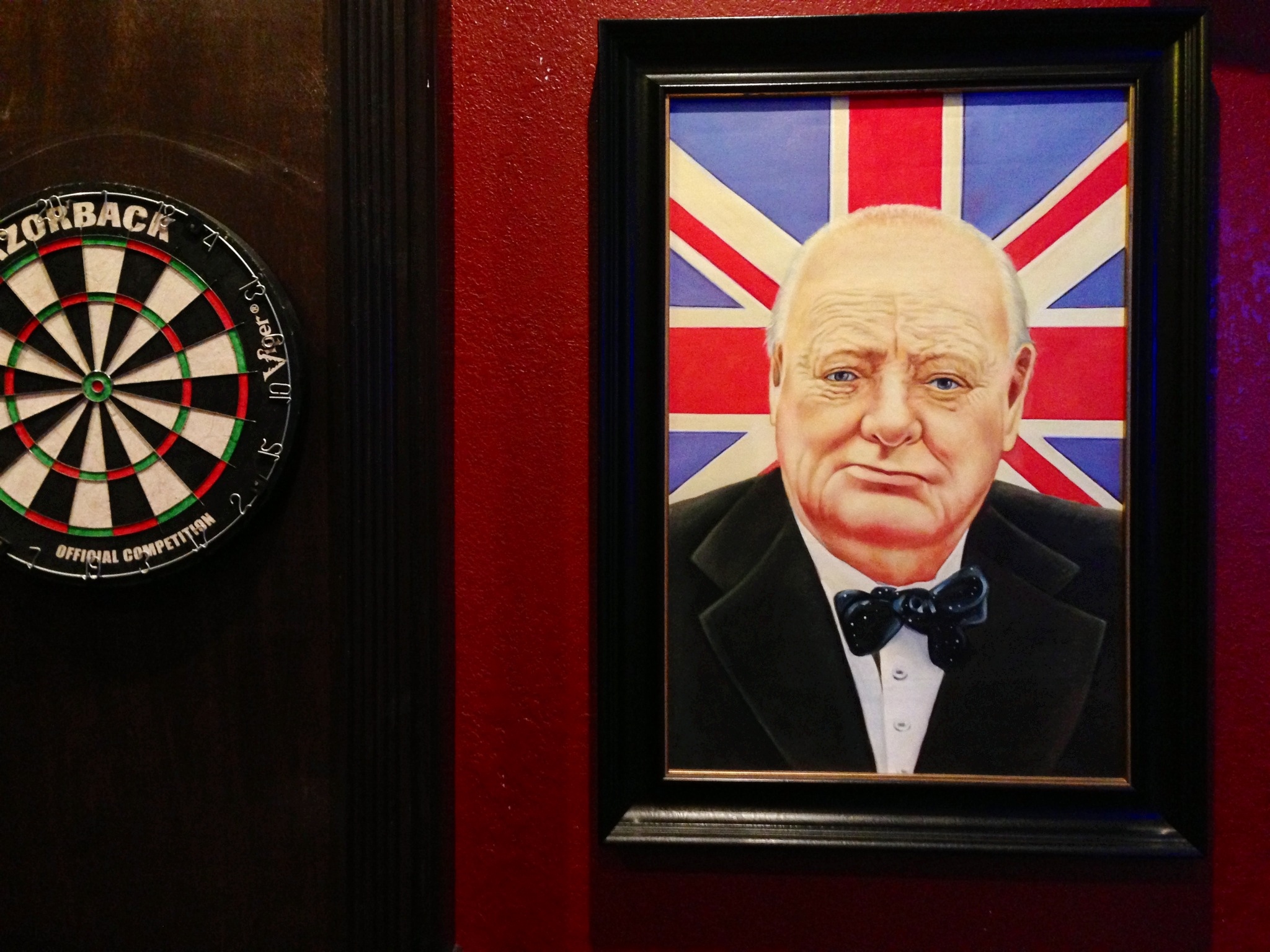
I'm sitting here in The Queen Mary Pub in a small town deep in South Florida, on the fringes of the Everglades. It's nearly midnight and I find myself alone at the bar reading C.S. Lewis's "Perelandra." A few inches away, my glass of London Pride finds itself nearly missing.
It's been a pleasant evening, one of those where the bar isn't too crowded, and even with mostly college students ordering pitchers an aura of warm feelings and consciousness soaks the place.
And yet, because it's in our nature, probably, to end up meddling with the moments that should most please most of us, I hear one of the bartenders, a woman, whisper to the barman who's been nearby... "See that girl over at that table? How old is she?"
My barman's filling a drink. "I dunno," he says. "But she hasn't ordered anything and she's been there without a glass."
"I'm going to grab her ID," replies the barmaid decisively. "I mean, ask for it," she quickly corrects herself.
It turns out the girl doesn't have her ID with her. She's asked to leave. Her friends at their table are left to finish the night without her, and she'll be walking home alone.
Let's break away from this scene for a moment to visit our friends at Merriam Webster. Specifically, "discretion," which we're told is the "freedom to decide what should be done in a particular situation."
I feel for this girl who was made to leave, even if she wasn't of legal age. Because despite doing no concrete or true harm to anyone here among us, one among us was compelled to do a concrete harm to her evening.
In law, there's a general idea that a case can't be judged unless actual harm has come to some party. Law is not meant to be decided abstractly -- which is why we have philosophy.
In the case of the girl here at the pub, from whose company we're now the poorer, there was no harm. Even presuming she was, in fact, underage, my barman had been watching her. She was enjoying good company even if not good spirits. Even if she was underage, no genuine harm was done to anyone.
And yet, our culture has developed in such a way that we send her away anyway. An abstract law protecting abstract principles occupies a higher place than the barman exercising his own discretion.
In a sense, we're no longer in some out of the way place on the fringes of a national preserve. In the act of eliminating discretion, the barmaid became an agent of Tallahassee, the Florida capital. She became an agent of something other than her own conscience, disrupting private fellowship for an abstract principle.
We become poorer people as our chances to exercise discretion -- to personally decide how a principle might best be applied in a particular situation -- disappear from our culture.
In a Constitutional culture constructed to favor the concrete and local culture of a place over the distant and abstract sentimentality of a state or federal capital, it only makes sense to leave as much room as possible for acts of discretion.
Just as "one size fits all" rarely suits fashion, it certainly doesn't suit our cultures and communities well, because it frustrates their ability to be authentically unique, special places. It makes them like anyplace else.
And it feels more and more difficult to go anyplace anymore that anymore feels like any special place.
Anyway, back to my Lewis and London Pride.